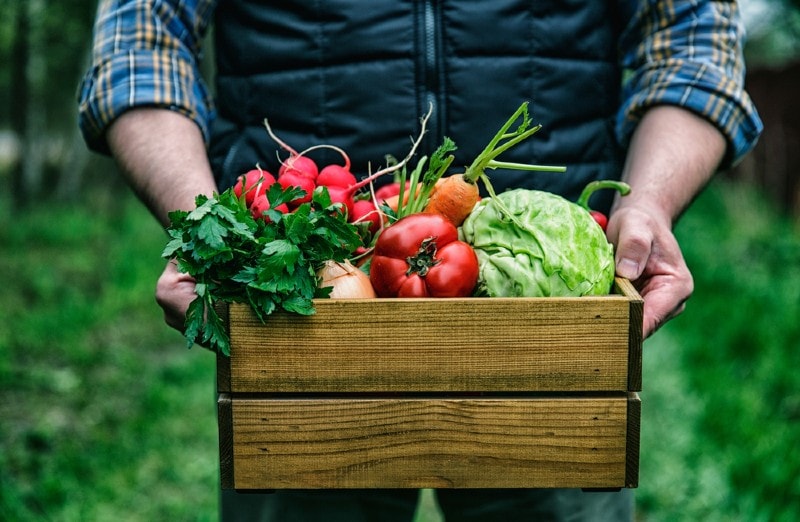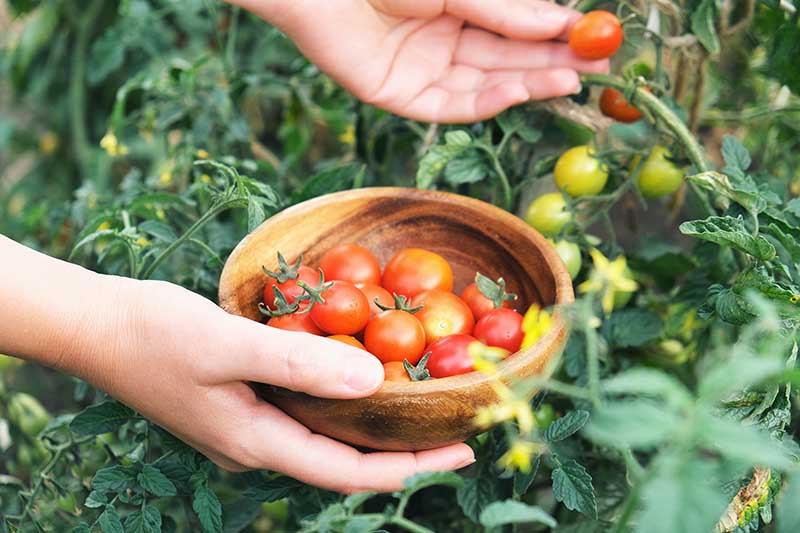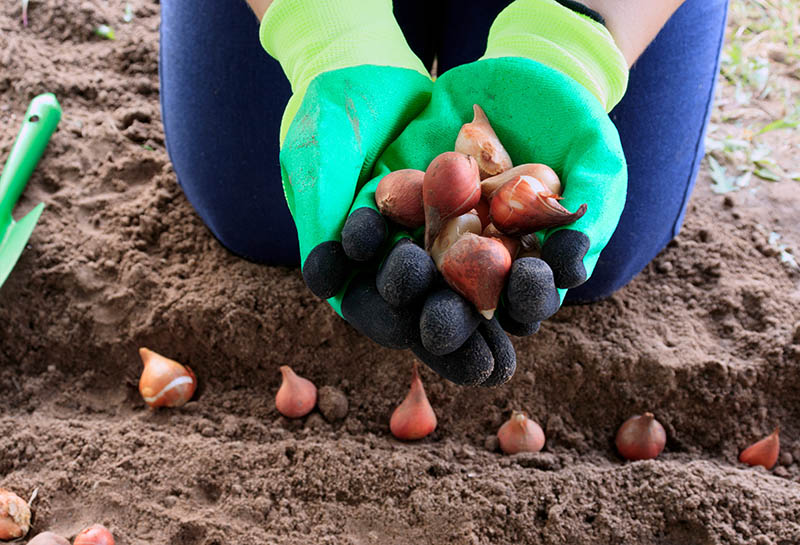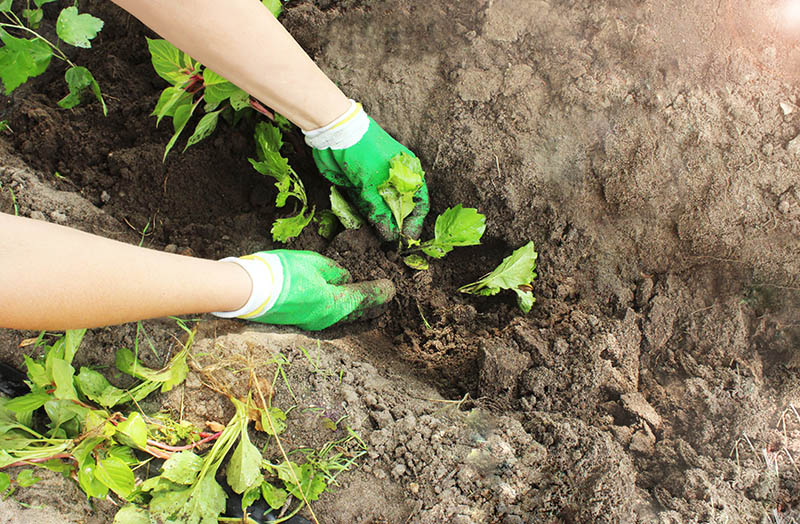What Is Organic Farming? How Does It Work?
-
Pete Ortiz
- Last updated:

Organic farming is a type of agriculture that focuses on producing food in a way that is environmentally sustainable and humane. What does that mean, exactly? Basically, it means using methods that do not damage the land or harm animals and that protect the health of both consumers and farm workers.
Organic farmers use a variety of techniques to achieve these goals. Below, we’ll take a closer look at some of the most common organic farming practices and explore their implications on the environment and human health.
How Does It Work?
Organic farming is a method of agriculture that relies on natural processes rather than the use of artificial chemicals. This means that organic farmers rely on things like crop rotation, green manure, and compost to keep their soil healthy and their plants growing strong. Organic farmers also avoid using synthetic pesticides and fertilizers, as well as genetically modified organisms (GMOs).
So, what does all of this mean for the food that we eat? Well, organic foods are generally thought to be better for our health than conventionally grown foods. This is because they’re free from harmful chemicals and GMOs. Additionally, organic farming is better for the environment, as it helps to preserve our natural resources and promote biodiversity.
Organic farming is a great way to produce healthy, eco-friendly food. If you’re interested in trying out organic foods, be sure to check out your local farmers market or health food store.

What Are the Different Types of Organic Farming?
There are three main types of organic farming:
1. Pure Organic Farming
At its core, pure organic farming is about using only natural materials and methods to grow crops and rear animals. This means no synthetic (artificial) pesticides, herbicides, fertilizers, growth hormones, antibiotics, or GMOs.
Organic farmers rely on things like crop rotation, companion planting, and green manure to keep pests and diseases at bay, and they use natural methods like composting to fertilize their soil.
Animal welfare is also a key concern in pure organic farming, with strict rules in place to ensure that livestock is treated humanely and given ample space to roam.
2. Integrated Organic Farming
Integrated organic farming takes a more holistic approach, incorporating both traditional organic methods and modern technology. For example, an integrated organic farm might use naturally derived pesticides alongside high-tech sensors to track crop health.
The goal of integrated organic farming is to create a self-sustaining system that minimizes the need for external inputs. This can help farmers save money and reduce their environmental impact.
3. Transitional Organic Farming
Transitional organic farming is a system that is in the process of converting from conventional to organic methods. Farmers who are in the transition phase may still use some synthetic materials, but they must follow strict guidelines set by certifying organizations.
The transition period usually lasts for three years, after which the farm can be certified as organic. During this time, the farmer must gradually phase out synthetic materials and adopt organic practices.
Where Is It Used?
Organic farming is practiced in many countries around the world. In the United States, the National Organic Program (NOP) governs organic farming. Many food products that are labeled “organic” in the United States are produced according to NOP standards.
Europe also practices organic farming, and the European Union (EU) has its own organic farming regulations. In general, organic farmers in the EU must follow the same rules as farmers in the United States. However, there are some differences, such as the use of certain pesticides and fertilizers.
Organic farming is popular in other parts of the world, such as Australia, Canada, and Japan. In fact, organic agriculture is growing in popularity all over the world as more and more people become interested in eating healthy, organic foods.

Advantages of Organic Farming
Organic farming has many advantages over traditional farming. To start with, organic farms are better for the environment—they use fewer chemicals and pesticides, and they help to preserve water and soil resources.
What’s more, organic farms also tend to be more energy-efficient than traditional farms, and they serve to provide a haven for wildlife.
Another big advantage of organic farming is that it is often healthier for both people and animals. Organic foods have been shown to contain more vitamins and antioxidants than conventional processed foods, and they are also free of harmful chemicals and pesticides.
Finally, organic farms tend to be more sustainable than traditional farms, meaning that they can continue to produce food for generations to come.
So if you’re looking for a way to eat healthier, help the environment, and support sustainable agriculture, organic farming is definitely the way to go!
Disadvantages of Organic Farming
Though organic farming has many advantages, there are also some disadvantages associated with it. The biggest disadvantage of organic farming is that it can be more expensive than traditional farming methods.
This is because organic farmers often have to pay more for their inputs, such as seeds and fertilizer. Additionally, they may also have to spend more on labor, as organic farms are often smaller and require more manual labor.
Another downside of organic farming is that it can sometimes result in lower yields—organic farmers often use less intensive methods, such as crop rotation, which can lead to lower overall production.
It’s also worth noting that pests and diseases can be more difficult to control in organic systems, as farmers cannot use synthetic pesticides and herbicides. This means that organic farmers have to rely on more labor-intensive methods, such as hand-weeding, to keep their crops healthy.
Despite these disadvantages, many people believe that the benefits of organic farming outweigh the costs, as organic foods are often seen as healthier and more environmentally friendly, which can be worth the higher price tag.

The Future of Organic Farming: What’s to Come
As the demand for organic food continues to grow, it’s likely that organic farming will become more prevalent in the years to come. In fact, the organic food industry is already one of the fastest-growing segments of the agricultural sector, and sales of organic products are expected to reach $272 billion by 2028.
With more and more consumers looking for healthy and sustainable food options, it’s likely that organic farming will continue to grow in popularity.
This could mean that organic farmers will have to find ways to increase production in order to meet the demand, which may lead to more innovative methods and technologies being developed, as well as jobs being created in the industry.
Frequently Asked Questions (FAQ)
What are the main principles of organic farming?
The main principles of organic farming are to work with nature, use natural processes and inputs, promote ecological balance, and preserve biodiversity.
What are some of the benefits of organic farming?
Some of the most notable benefits include improved soil health, reduced reliance on synthetic chemicals, and increased biodiversity. Additionally, organic foods are often seen as healthier and more sustainable.
How is organic farming different from conventional farming?
For one, organic farmers rely on natural processes and inputs rather than synthetic chemicals. Additionally, organic farms are often smaller scale and more diversified, which can lead to increased biodiversity. Finally, organic farmers typically have a stronger focus on animal welfare.
What are some of the challenges facing organic farmers?
Organic farmers often face greater challenges when it comes to marketing their products and competing with conventional farms. Moreover, they may struggle to find sources of certified organic seed, as well as inputs like manure and compost. Organic farms can also be more labor intensive, as they often rely on manual methods rather than machinery.
Conclusion
As more consumers take their diets and health seriously, organic farming continues to surge in popularity. While there are some challenges that organic farmers face, such as pests, weeds, and higher costs, organic methods are proven to be environmentally and health-friendly.
Thus, the benefits of organic farming—for both the environment and human health—make it a practice worth supporting.
Featured Image Credit: Guzel Gashigullina, Shutterstock
Contents


